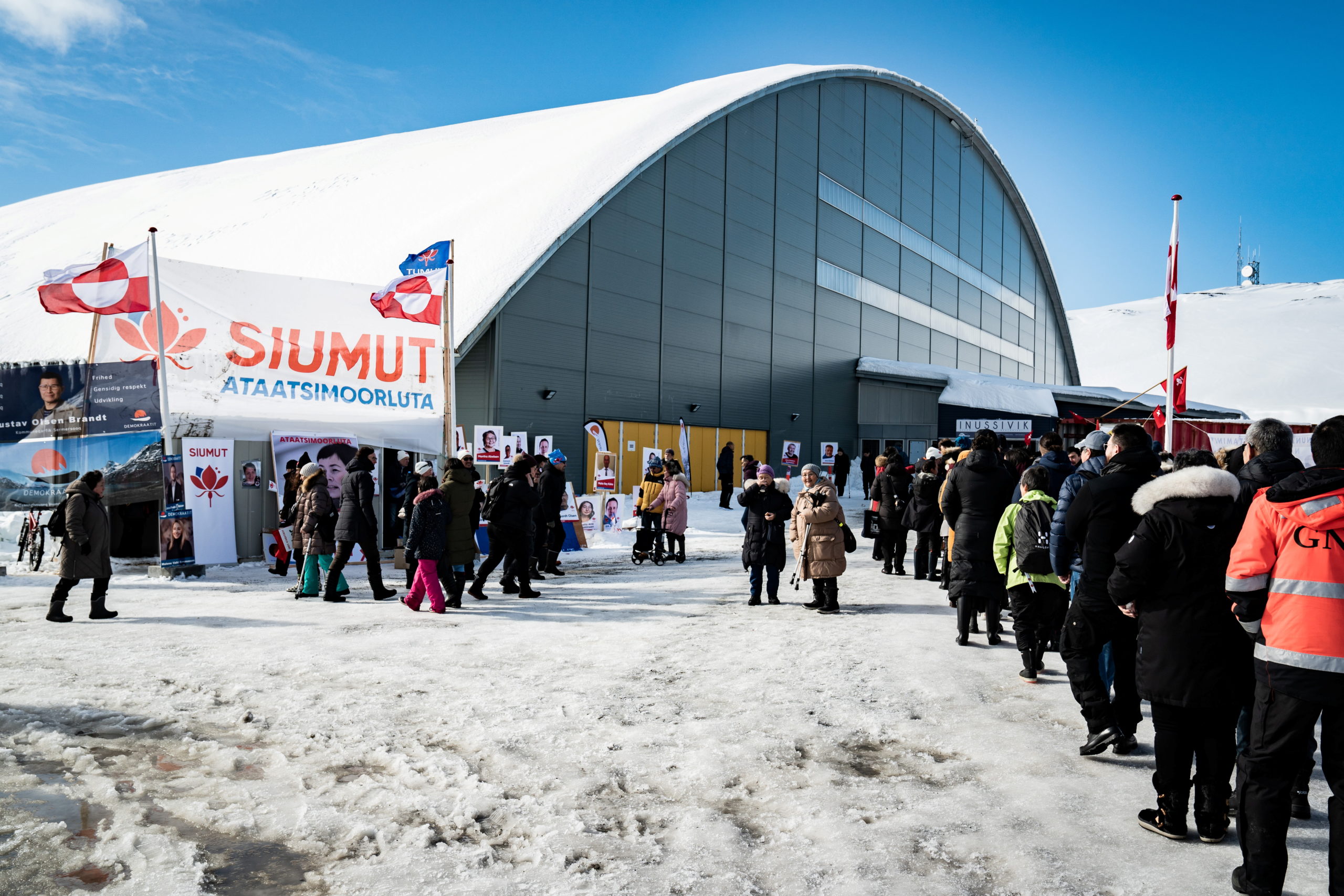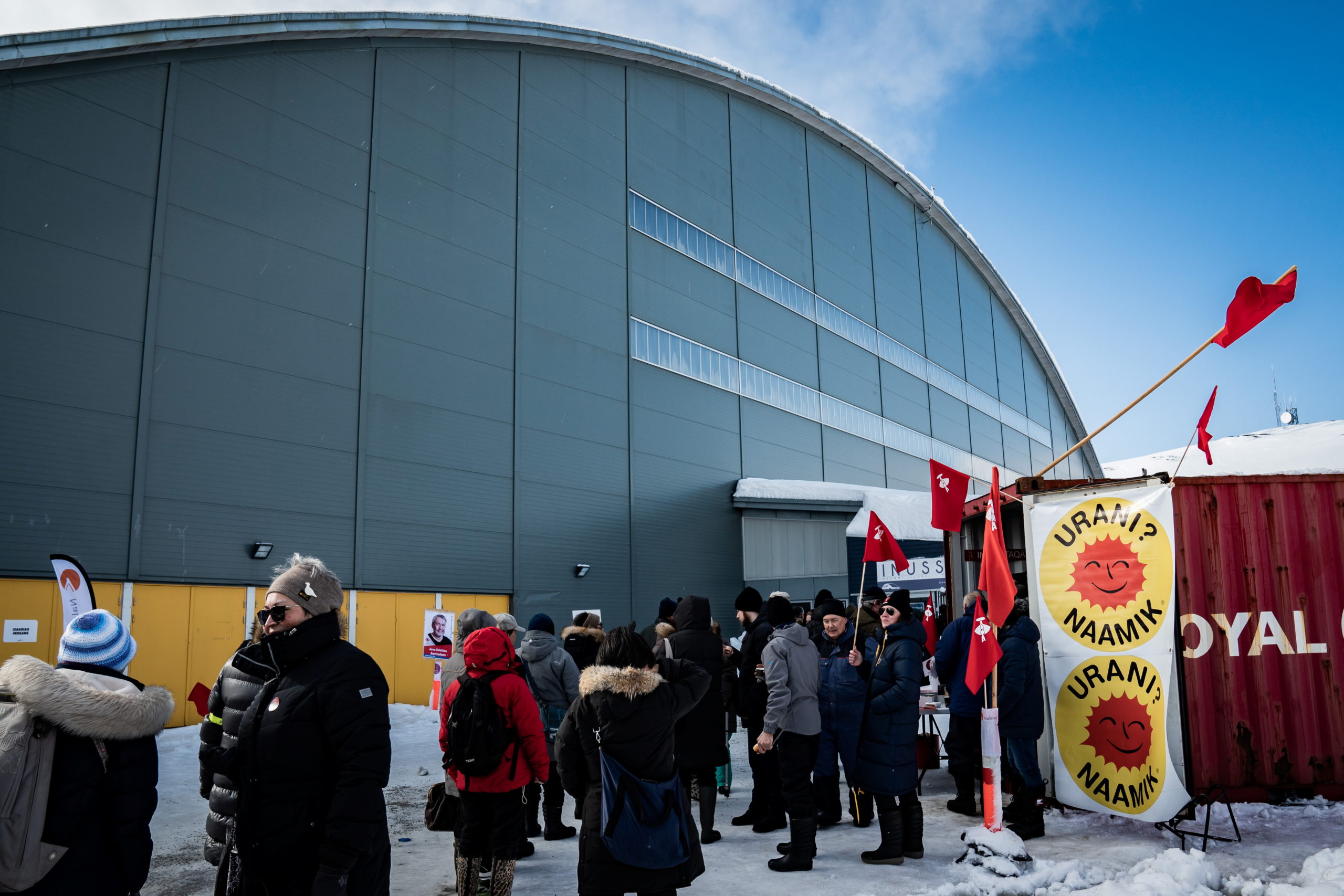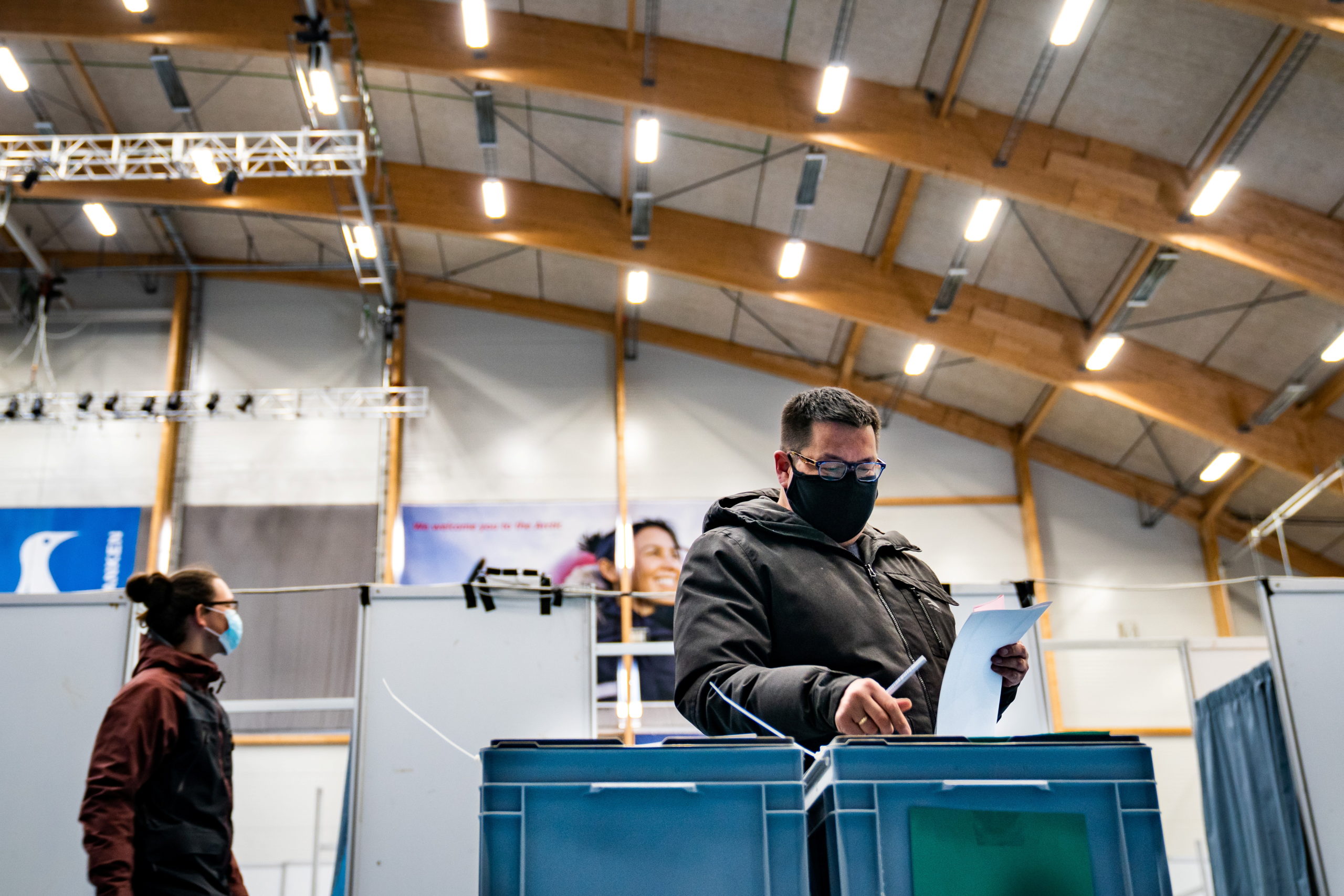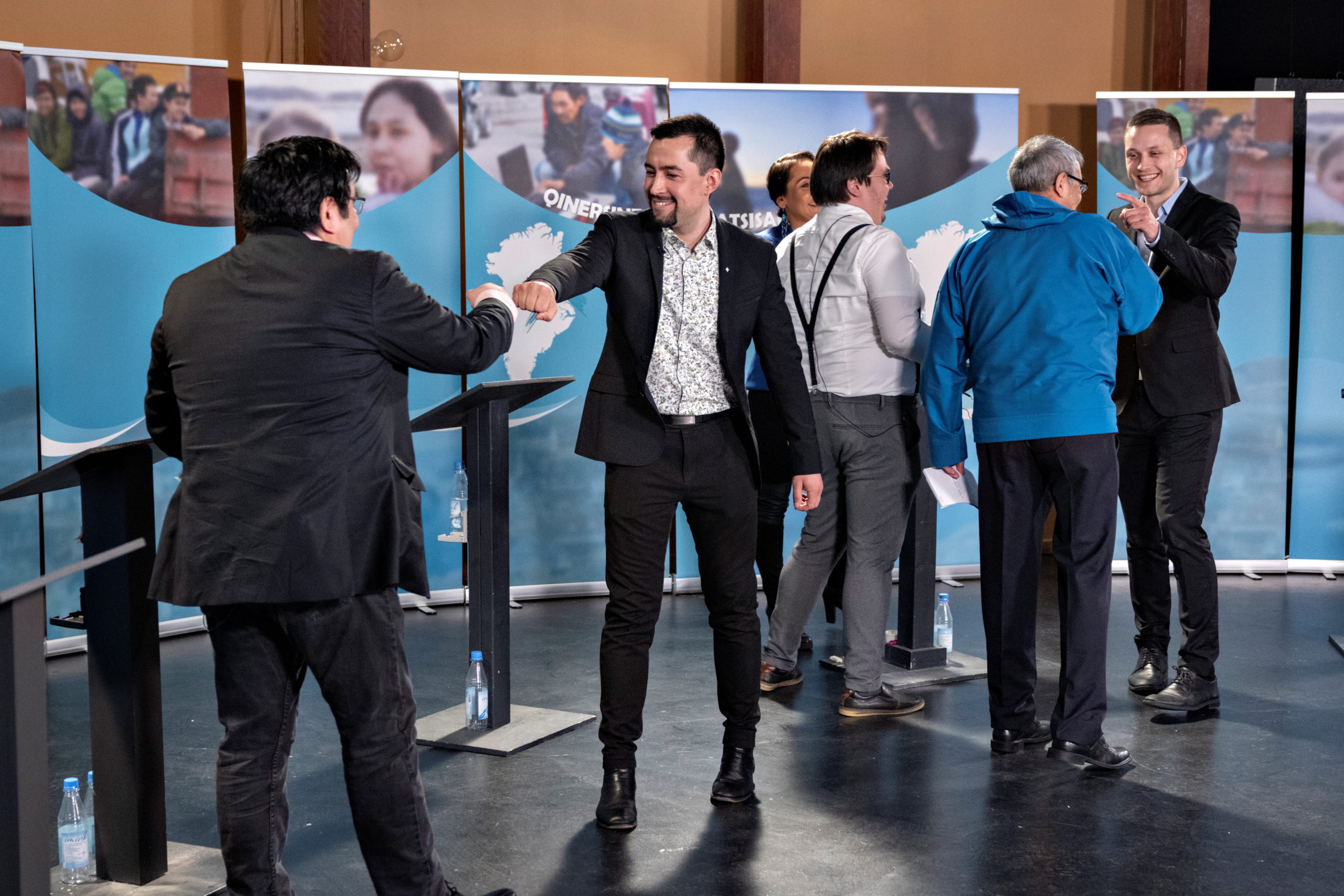Greenlanders head to polls in snap election
The election for seats in Inatsisartut, Greenland's parliament, has been largely defined by a debate over a major rare earths and uranium mine.
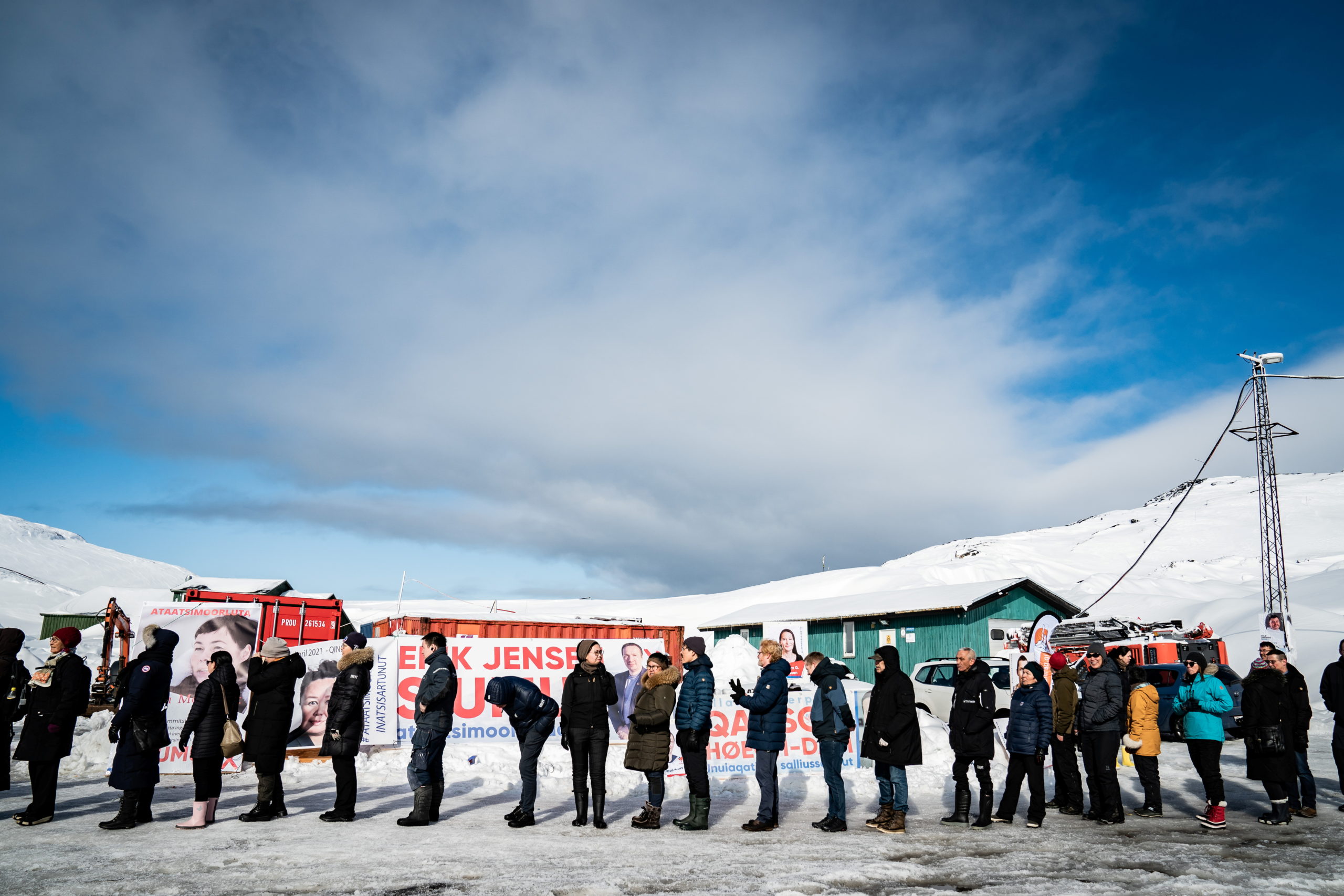
Greenlanders headed to the polls Tuesday to vote in a snap parliamentary election that has been dominated by debate over a controversial mining project proposed in the country’s south.
Other issues, such as the speed at which the country should pursue independence, the country’s strict coronavirus policies, what foreign policies it should pursue and diminishing faith in its democratic institutions all were sidelined or subsumed into the mine debate.
The Kuannersuit (or Kvanefjeld) project is a rare earths mine proposed by the Australian company Greenland Minerals on the mountain of that name near the village of Narsaq in Southern Greenland.
In addition to the rare earths, which are necessary for many fast-growing green energy technologies, such as wind turbines and batteries, the mine would produce uranium ore. After more than a decade of work, including several plan revisions, the project now must pass one final hurdle, the public consultation period.
[Public hearings on a controversial Greenland mine get underway]
Opponents cite the risks of radioactive waste, including in mine tailings and from airborne dust in an area that is home to some of Greenland’s only agricultural land.
Backers of the mine say such developments are vital to building an economy that will eventually allow the nation to become fully independent from Denmark — a widely shared goal across Greenland’s political spectrum. Denying the mine approval wouldn’t just stop the Kuannersuit project, said Acting Minister of Resources Vittus Qujaukitsoq, but could scare away future mining investment, too. “The credibility of the whole country is at stake,” he said.
Most political parties have supported the project, but public opinion is a different matter. According to a poll published Monday by the news outlet SermitsiaqAG, some 63 percent of Greenlanders said they opposed the project.
Greenland’s main opposition party, Inuit Ataqatigiit (or IA), stands to benefit from that, as the largest opposition party and an outspoken voice against the project. And indeed a poll published late last week showed the party on track to be the top vote getter, with about 36 percent.
Den (s)eneste meningsmåling under valgkampen er netop publiceret af @sermitsiaqag #glpol #glvalg21 https://t.co/lKSYHZNPa9 pic.twitter.com/wVdaEmHERH
— Rasmus Leander (@rasmusleander) April 2, 2021
Siumut, the party of the current premier, Kim Kielsen, and the party that has dominated Greenland politics since self-rule was established, was polling in a distant second, at 23 percent.
It was a power struggle within Siumut that eventually led to the snap elections.
After surviving a no-confidence vote in Inatsisartut, the nation’s parliament, by a single vote in October, Kielsen was ousted as party leader the following month.
Kielsen stayed on as premier, but the Siumut party shakeup caused a junior member of the governing coalition, Demokraatit, to withdraw, and when Kielsen couldn’t form a new coalition, lawmakers voted in February to hold an early election.
In addition to members of Inatsisartut, Greenlanders will vote for members of municipal and ward councils. Polls close at 8 p.m. local time.
